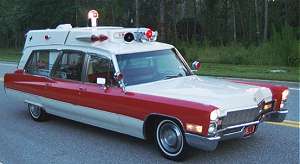Things are getting interesting over there!
General David Petraeus's decision to out the Iranian ambassador to Iraq as a member of the Quds Force coincides with a new tribal outreach campaign aimed at prying Iraqi Shiites in the south from the grip of Iran's powerful security services.
American and Iraqi forces and intelligence agencies in August began to send emissaries to southern Iraqi tribal sheiks in an effort to recruit a Shiite version of the Anbar Salvation Front, the Sunni tribal chieftains who aligned themselves against Al Qaeda. In this case, however, the plan is aimed largely at turning the local population in five key cities Basra, Karbala, Kut, Najaf, and Nasiriyah against Iran's Revolutionary Guard and the militias that the guard largely controls.
In the last two months in particular, General Petraeus, the top American commander in Iraq, has blamed a good deal of the violence in Iraq on Iranian meddling. He went much further yesterday, telling CNN that the Iranian ambassador in Baghdad, Hassan Kazemi Qomi, was a member of the country's Quds Force, the elite terrorist training arm of the Revolutionary Guard.
With the new information now confirmed by General Petraeus, any future talks with the Iranians over their role in fueling the insurgency in Iraq are unlikely. The Quds Force not only is implicated in planning attacks on American soldiers, it also is "implicated in the assassination of some governors in the southern provinces," the general said.
He added that there was no chance he would return the Iranians captured in operations since January, a key demand of Mr. Qomi. The New York Sun reported in April that those Iranians are being held in jails run both by Iraq's Sunni intelligence service and the American military. In yesterday's interview, the general said there was no debate that the men captured were members of the Quds Force.
Of the negotiations with Iran, General Petraeus said America was in "show-me mode." A number of Iraqi leaders have traveled to Tehran and asked that the Iranians "stop the lethal assistance," he said. "There have been sub-ambassadorial meetings, as well. And there have been assurances in return, actually from Iran to Iraqi leaders, and we are waiting to see if those assurances bear fruit."
The outreach effort began in August, a military officer said yesterday, and the CIA, the Army, and the Iraqi security agencies are coordinating meetings with local tribal leaders. "In a lot of cases, we are gauging interest," the officer, who requested anonymity, said. Any effort like this is not likely to show signs of success until early next year, he added.
Another component of the southern tribal outreach is to draw elements of Moqtada al-Sadr's militia, the Mahdi Army, into the government, separating those elements of the militia believed to be controlled by members of the Revolutionary Guard.
A militia affiliated with the Supreme Iraqi Islamic Council, known as the Badr Brigade, was trained by the Revolutionary Guard when Iran harbored the organization before the war. However, the leader of the SIIC, Ayatollah Abdul Aziz al-Hakim, announced in June that his organization no longer accepted the Shiite doctrine associated with Iran's Islamic revolution called the Rule of Jurisprudence, or the notion that Shiite clerics should also wield political power in Shiite states. After his declaration, Ayatollah Hakim flew to Iran for surgery, leading some American analysts to doubt the sincerity of the group's conversion.
The tribal outreach campaign with the Shiites is meant in part to marginalize the Shiite theology of the leader of the 1979 Iranian revolution, Ayatollah Ruhollah Khomeini, the military officer said. "We are trying to make the case that he was an infidel," he said. |
 Al Masri had just been reported dead hours earlier, following a firefight with a band of Sunni irregulars. Those irregulars are a story of their own, as will be revealed below. . . .
Al Masri had just been reported dead hours earlier, following a firefight with a band of Sunni irregulars. Those irregulars are a story of their own, as will be revealed below. . . .
 A SUICIDE bomber in a stolen ambulance killed 14 Iraqis overnight in an attack on a police post in an area controlled by Sunni tribes opposed to al-Qaeda. Omar al-Alwani, a doctor at Ramadi Hospital, said five police, three children, three civilian women and three local men were killed in the attack in the Albu Alwan area of the western city. The police post had been set up in a converted house at the heart of a residential area that has become a target for al-Qaeda insurgents since local tribal leaders formed a movement to oppose them.
A SUICIDE bomber in a stolen ambulance killed 14 Iraqis overnight in an attack on a police post in an area controlled by Sunni tribes opposed to al-Qaeda. Omar al-Alwani, a doctor at Ramadi Hospital, said five police, three children, three civilian women and three local men were killed in the attack in the Albu Alwan area of the western city. The police post had been set up in a converted house at the heart of a residential area that has become a target for al-Qaeda insurgents since local tribal leaders formed a movement to oppose them.